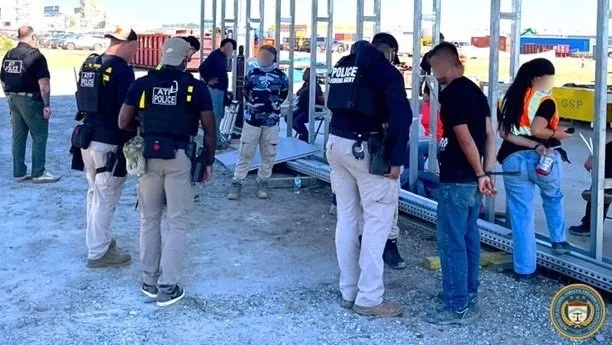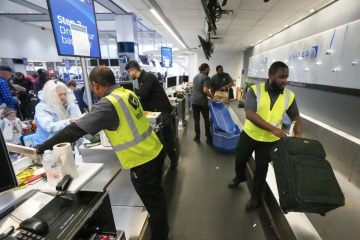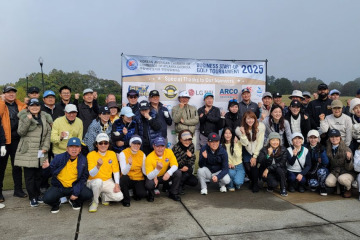Savannah, September 5, 2025 — In the largest single-state immigration raid in years, federal agents descended on a sprawling Hyundai-LG electric vehicle battery plant under construction in Georgia last week, arresting an estimated 450 to 500 workers and sending shockwaves through diplomatic and business circles in both the United States and South Korea.
The meticulously planned operation, which targeted the HL-Ga battery plant—a $7.6 billion joint venture seen as a crown jewel of U.S.-Korea economic cooperation—has raised pointed questions about whether the massive foreign investment project was singled out for political messaging, coming just weeks after a new administration took office.
The raid, conducted by Homeland Security Investigations (HSI), focused on the plant in Bryan County, Ga., which is adjacent to Hyundai Motor Group’s massive Metaplant America site. Federal agents sealed off the construction area, corralled workers against a wall, and individually checked passports and visas before handcuffing scores of individuals with zip-ties and loading them onto buses.
HSI officials described the action as a “criminal investigation into alleged illegal employment practices and violations of federal law,” intended to “protect American jobs and promote fair competition.”
However, the timing and target of the crackdown have spurred a more complex interpretation. The raid strikes directly at the largest U.S. investment by a Korean company—a project that has received significant state and federal incentives and was hailed as a model of partnership.
“This wasn’t a random traffic stop. This was a surgical strike on a symbol of foreign investment,” said a Korean-American business official who spoke on the condition of anonymity due to the sensitivity of the matter. “It feels like a blunt message to all foreign companies about the new regulatory environment.”

The fallout has been immediate. The South Korean government, caught off-guard, is scrambling to respond. With the position of Consul General in Atlanta currently vacant, the consulate’s efforts have been hampered, limited to offering basic consular assistance.
In the void, private groups have mobilized. The Atlanta Immigration Lawyers Association and local Korean-American civic organizations are offering pro-bono legal aid to those detained, many of whom are being held at the Foxton ICE temporary detention facility near the Georgia-Florida border.
“We have a significant number of Korean citizens detained, and the response from their government has been lacking,” said a leader of a Korean-American civic group. “There’s a feeling that a much stronger, more urgent diplomatic response is needed.”
The legal implications are severe for the companies involved. The crackdown notably focused on a common practice among Korean corporations: dispatching employees from headquarters on short-term business or visa-waiver visas to perform long-term work.
An immigration attorney in Atlanta told Georgia Asian Times that such practices clearly violate the terms of those visas. “Entering on a B1 visa and working for a business is subject to regulation. This action puts the human resource management of every Korean company in the U.S. under a microscope,” the attorney said.
The consequences could extend beyond fines. HL-Ga Battery, which promises to create 8,500 jobs, received substantial tax incentives and grants. If investigators prove widespread violations of labor laws, the company could be forced to repay those incentives and suffer a devastating blow to its reputation.
The incident highlights the precarious nature of international economic alliances that can shift with a change in the White House.
“The previous administration used policy like the Inflation Reduction Act to attract Korean investment,” the Korean-American official noted. “This administration appears to be using the blade of regulation. The structural instability of the Korea-U.S. economic alliance has been laid bare.”
Whether the arrests will lead to formal charges or mass deportations remains to be seen as the federal investigation continues. But the message, for now, has been received loud and clear on both sides of the Pacific. – Georgia Asian Times










